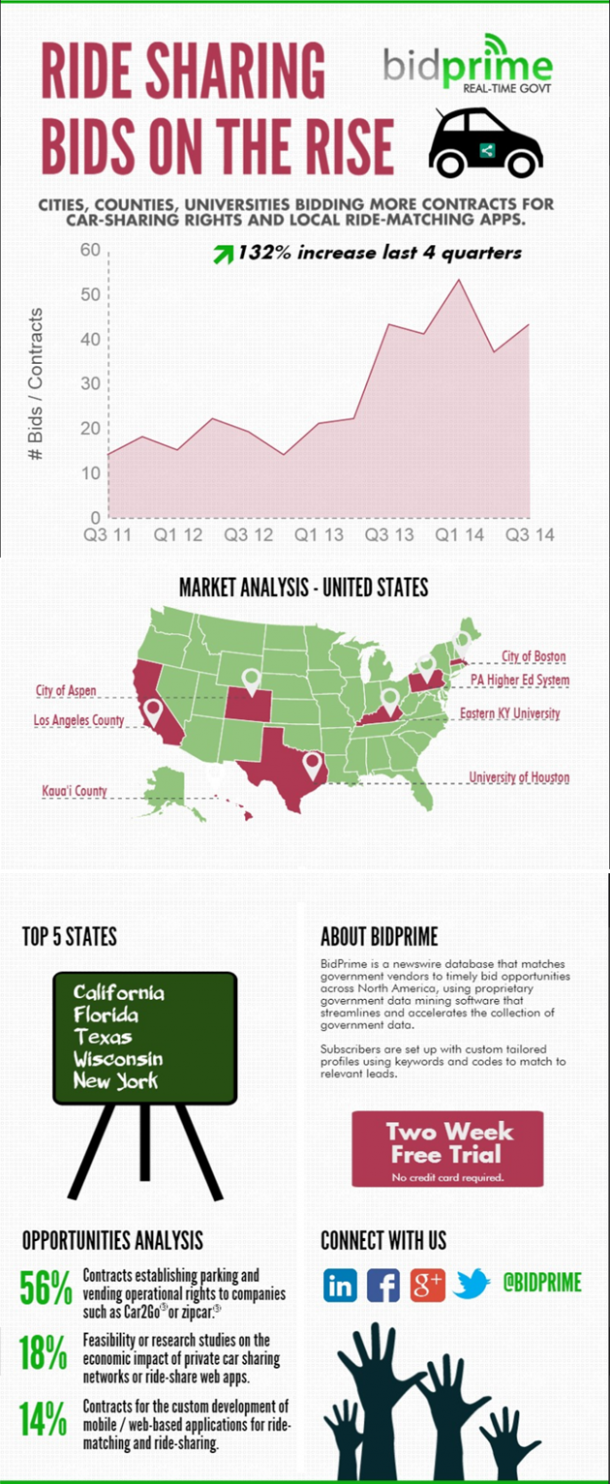Imitation by local governments is not intended as a form of flattery as they struggle for resolution with the growing ride-sharing industry. Upstart ride-sharing companies like Uber and Lyft, who arrange rides and fares using a smartphone app, are becoming popular alternatives to public transportation. Governments contend that these companies pose safety risks because they lack public regulation and potentially risk eating into city regulated taxicab businesses. Uber, valued at $17 billion dollars, plans on expanding its European and Domestic markets with 200 more cities in the near future.
In Europe, Germany recently banned the use of Uber. That followed massive protests by cab drivers in Germany, England and Switzerland, each creating traffic nightmares. Uber and Lyft, both based in San Francisco, have put up a staunch legal defense abroad which is currently in litigation.
In the US, negotiations between ride-sharing companies and politicians in whose hands lay the future of their industry are being addressed. Just like Europe, municipalities are alarmed about its potential effect on licensing, taxes, and public transit. It appears many cities are researching and developing their own solutions, however varied.
Over the last few years, companies like Car2Go and Zipcar have established contracts with local entities to share vehicles for the purpose of short transit. These companies are more easily regulated through their contracts. Governments have embraced and co-opted this model much more than companies like Lyft and Uber. Of course, the drives are not able to be taxed.
Many US Cities are seeking to contain the spread of ride-sharing apps through new laws, regulations, and litigation. Other cities are looking to limit the spread by building and managing their own smartphone applications.
In August, at a City Council Public Hearing on the topic in Oklahoma City, concerned citizens testified on proposed tweaks to pending regulatory legislation. The Council members themselves left with their own solutions, too.
Among them were “dropping requirements that drivers get a physical exam and have their cars inspected by the city.” Another Council member “suggests making background check requirements uniform across all classes of vehicles-for-hire.” This caused the Oklahoma City Council to postpone voting on any changes to their current legislation. This ruling will lay the groundwork for the future of this industry and how far local governments can legally go to protect their own agendas.

According to BidPrime, there has been an increase in government contracts centered on both car-sharing and ride-sharing. The data suggests that municipalities are embracing car-sharing contracts as a way to get on board with new forms and demands of public transport by their citizens. In the last 12 months, BidPrime’s government contract database showed a 132% increase in transit-sharing bids. The majority of these contracts were for vending rights for car-sharing. Yet 14% of these opportunities were requirements and bids for development of their own internal ride-sharing applications. Many of these were universities piggybacking on the concept. However, a number of feasibility studies and consultants have been sought to evaluate the impact of applications such as Uber or Lyft.
No doubt that governments will continue to seek methods to either co-opt these applications or manufacture more direct laws to limit these emerging alternative methods of public transportation. Over the next year, these contract opportunities for all of the above should only increase.
Review the following infographic for a visual summary of the data analysis.

Sample Active Bids/RFPs
Car-Sharing and Ride-Sharing
To see more about bids / RFPs related to Car-Sharing and Local Ride-Sharing, and to view the bid documentation, call us at 888.808.5356 or visit BidPrime.

